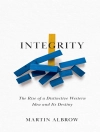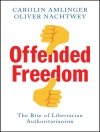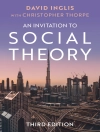The concept of intersectionality has become a central topic in academic and activist circles alike. But what exactly does it mean, and why has it emerged as such a vital lens through which to explore how social inequalities of race, class, gender, sexuality, age, ability, and ethnicity shape one another?
In this fully revised and expanded second edition of their popular text, Patricia Hill Collins and Sirma Bilge provide a much-needed introduction to the field of intersectional knowledge and praxis. Analyzing the emergence, growth, and contours of the concept of intersectionality, the authors also consider its global reach through an array of new topics such as the rise of far-right populism, reproductive justice, climate change, and digital environments and cultures. Accessibly written and drawing on a plethora of lively examples to illustrate its arguments, the book highlights intersectionality’s potential for understanding complex architecture of social and economic inequalities and bringing about social justice-oriented change.
Intersectionality will be an invaluable resource for anyone grappling with the main ideas, debates, and new directions in this field.
Inhaltsverzeichnis
Preface
Chapter 1 What Is Intersectionality?
Chapter 2 Intersectionality as Critical Inquiry and Praxis
Chapter 3 Getting the History of Intersectionality Straight?
Chapter 4 Intersectionality’s Global Reach
Chapter 5 Intersectionality, Social Protest and Neoliberalism
Chapter 6 Intersectionality and Identity
Chapter 7 Intersectionality and Critical Education
Chapter 8 Intersectionality Revisited
Endnotes
References
Über den Autor
Patricia Hill Collins is Distinguished University Professor of Sociology at the University of Maryland.
Sirma Bilge is Full Professor of Sociology at the Université de Montréal.












